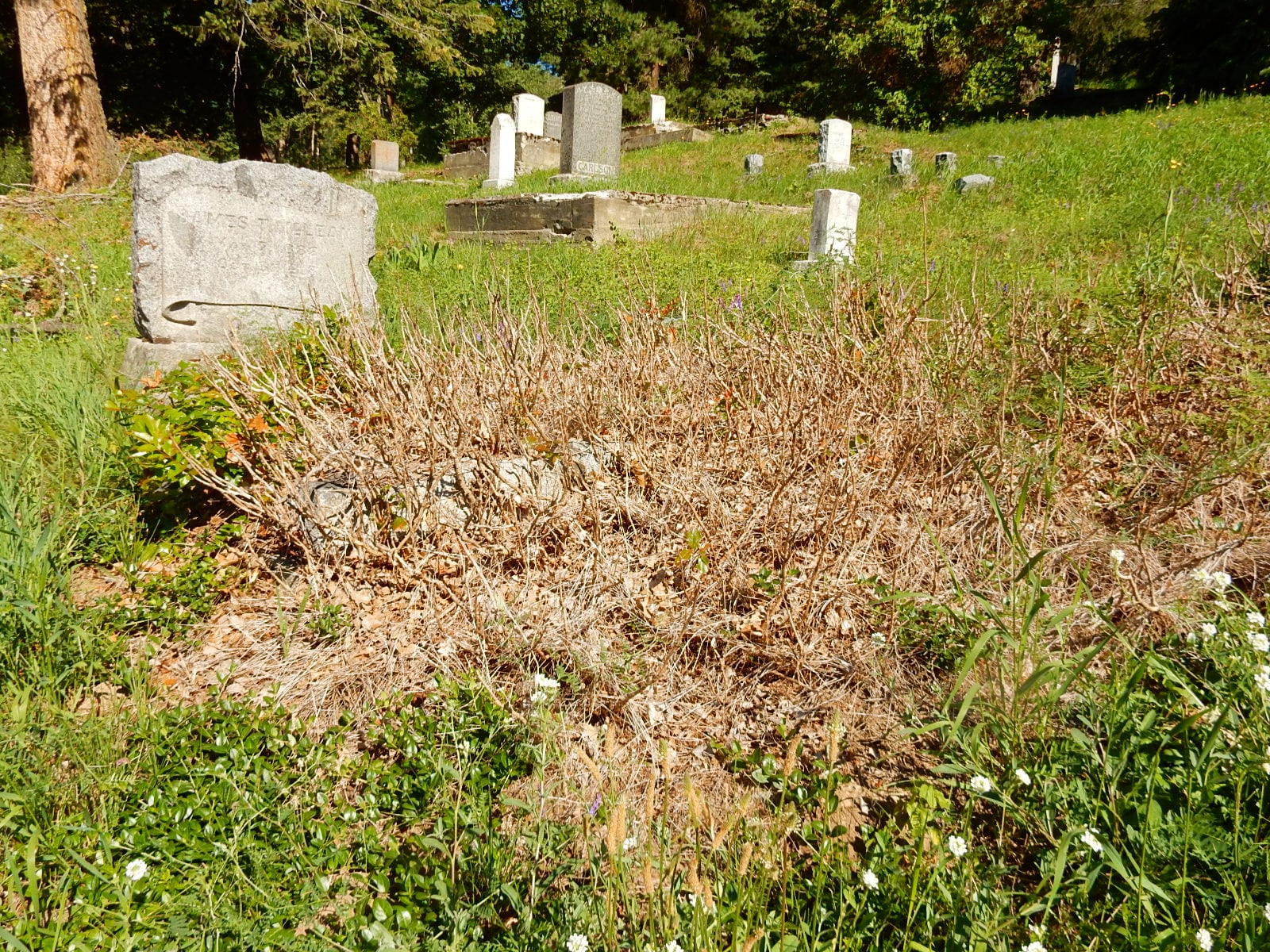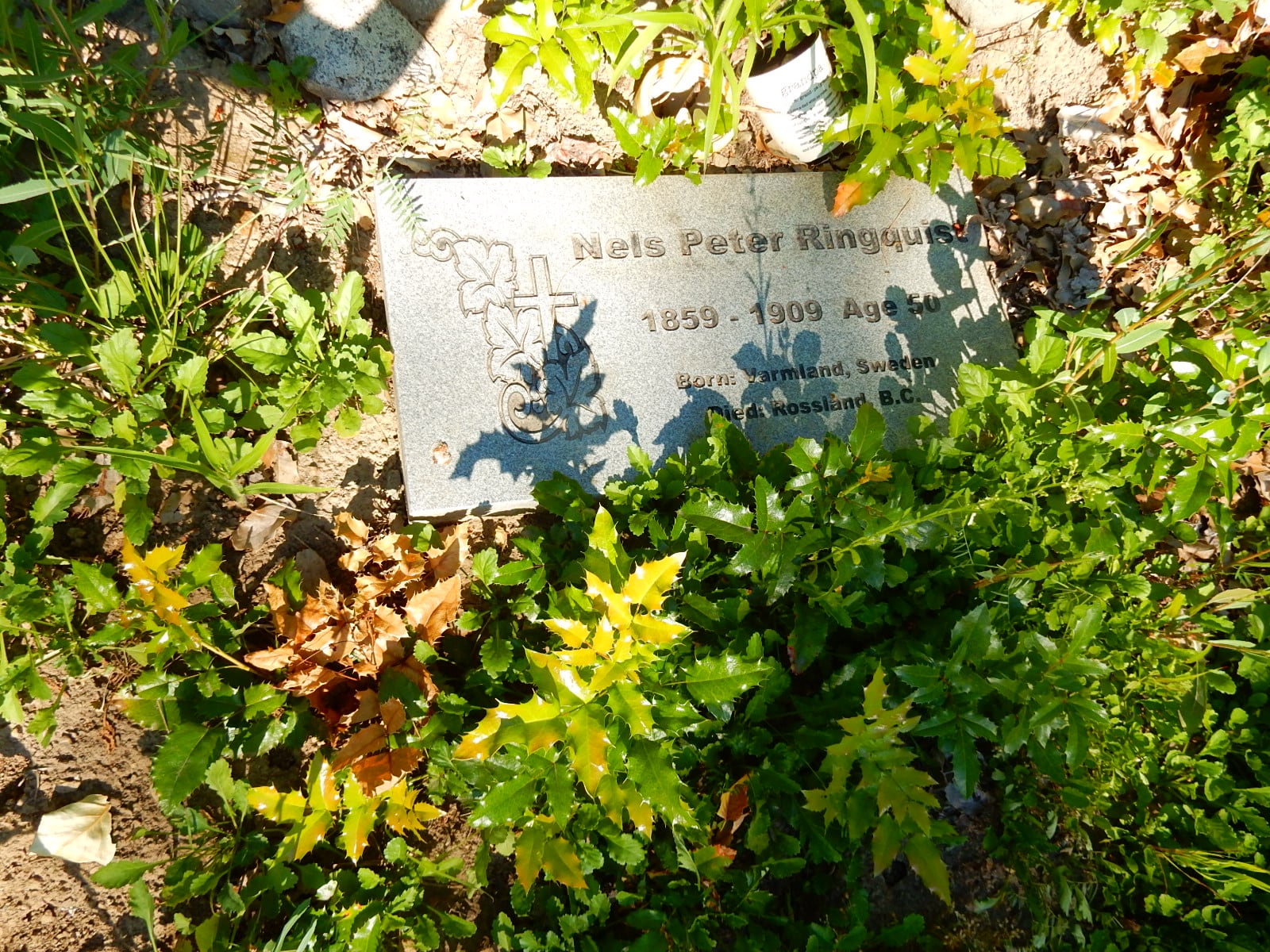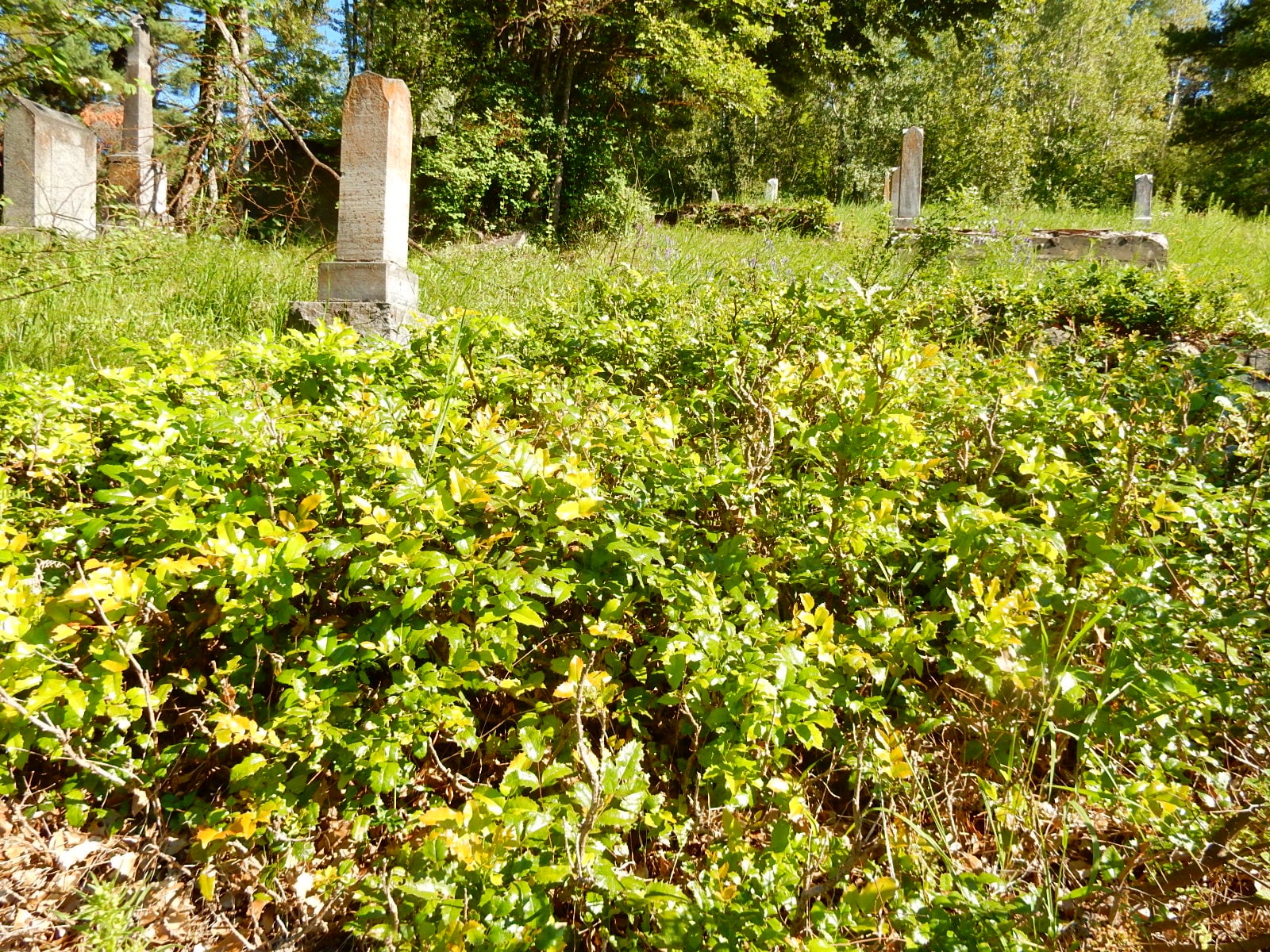Native Plants vs. Herbicides: Oregon Grape Quandary in the Columbia Cemetery
Last year, several hikers were alarmed and dismayed by signs in the old Columbia Cemetery announcing that a nearby native shrub – Oregon grape — had been treated with herbicide. They wondered why a harmless native plant was being sprayed, in a City with a policy of not using herbicides except in unusual circumstances – such as infestations of the serious alien invasive, Japanese Knotweed.
This year, the topic of spraying the cemetery's Oregon grape surfaced once again, because the first application of herbicide was not fully effective in killing off the prickly shrubs. They’re springing up again in the south-east area of the old cemetery, all fresh, shiny and bright green, though there are other areas dense with dead brown stems where the herbicide was more successful. The herbicide was expected to need another application after last year’s work.

The Columbia Cemetery and the Calvary Cemetery are both listed on Rossland’s Heritage Register. I went with Jackie Drysdale, Chair of our Heritage Commission, to view the scene and try to understand what the problem was with this pretty, berry-bearing and drought-resistant native plant. And, yes, the problem was evident.
The problem is the particular territory being claimed by the Oregon grape: it is enthusiastically colonizing many graves as well as the pathways between them, burying the markers or monuments, and making it difficult or impossible for descendants of the graves’ occupants to find or approach their ancestors’ graves.
Drysdale showed me the grave of Nels Peter Ringquist (1859 – 1909) whose family members had sought help in locating it a couple of years ago; she led the family to it, then spent hours with them pulling the overgrowth of weeds and digging out roots – down to a depth of two feet — re-filling the excavation, and installing a permanent stone marker. (Decades ago, Drysdale explained, the cash-strapped City had resorted to attempting to control the overgrowth of weeds in the cemetery by means of controlled burns, which got away enough to devour wooden grave markers as well as the grass and weeds.) Now Oregon grape is invading Ringquist’s gravesite again and obscuring the new stone marker.

Merely cutting the Oregon grape will not remove it; Oregon grape withstands pruning quite well. Can this cemetery’s historic gravesites and paths be cleared of Oregon grape and maintained without using herbicides? Last year’s herbicide application cost roughly $3,500, according to Drysdale.
To get rid of the Oregon grape taking over gravesites and pathways in Columbia Cemetery, should the City make an exception to its policy of not using herbicides? And if not, what should be done?
The City has recently been awarded a grant of $33,000 to create a Heritage Management Plan for the heritage properties in Rossland. The Columbia Cemetery could benefit from being included in a management plan, and from having more regular maintenance. The problem with that, of course, is the cost. Rossland has so many assets worthy of spending more tax dollars to improve or maintain – but there is a limit to the increases in property taxes that can be imposed without damaging our community composition. City decision-makers often face hard choices.
























